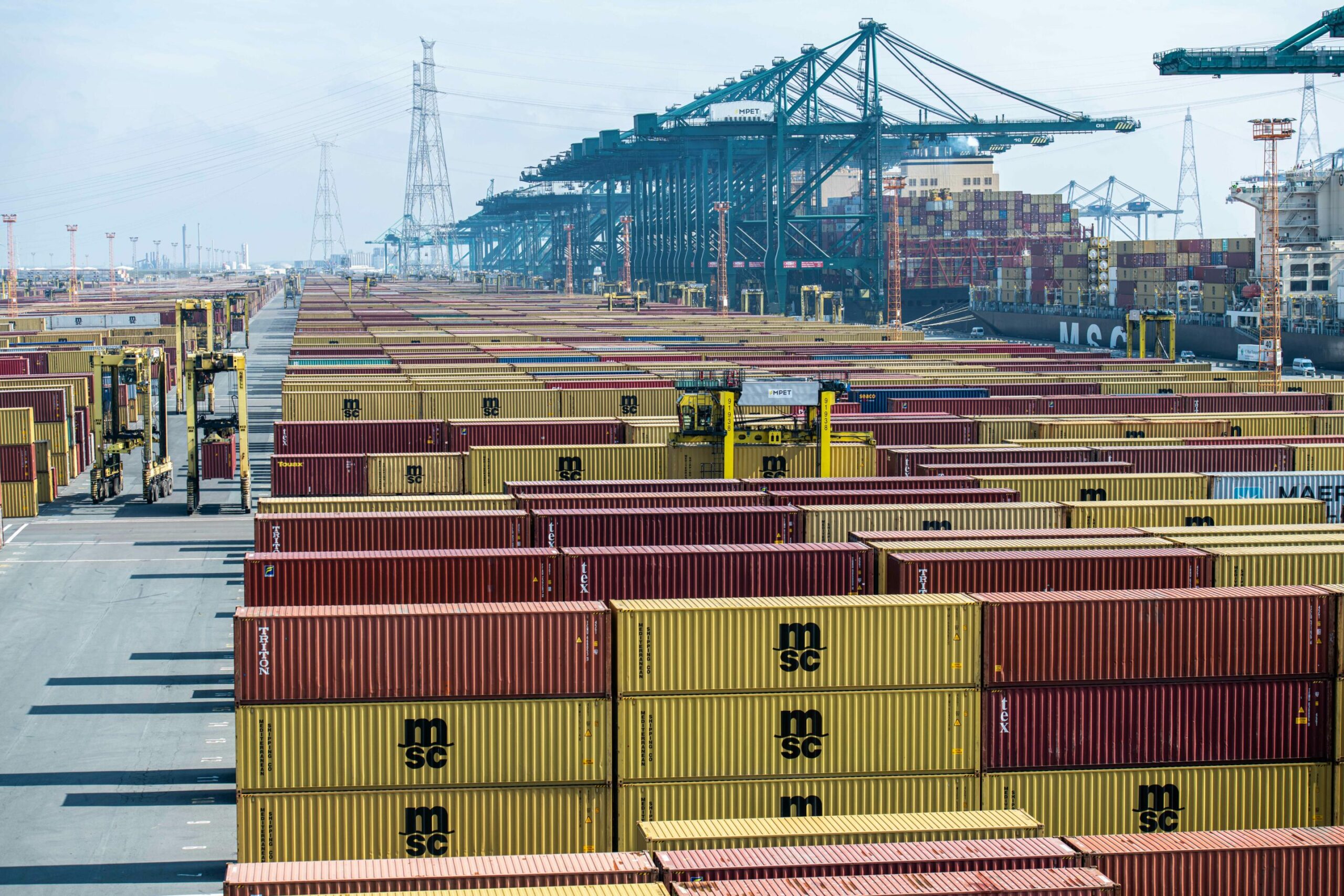Belgium's Federal Planning Bureau (FPB) has become more pessimistic about the country's economic growth after analysing the past three months.
The FPB's latest economic outlook says that there has been "disappointing" growth in Belgian household spending this year, as well as weaker international trade.
The government office predicts that the Belgian economy will grow by 1.1% this year, and by 1.3% in 2025 – revised down by 0.3 and 0.1 percentage points respectively since its June forecast.
Job creation at a 'standstill'
September's outlook is also predicting a slowdown in the jobs market, with the employment rate predicted to "barely increase" between now and 2025, and "considerably fewer" new jobs expected to be created than in previous years.
A slowdown in commercial activity in the first half of 2024 has weakened job creation, and the creation of new jobs could come to a "complete standstill" in the second half of the year, the FPB has said.
The FPB predicts that while there were an additional 40,700 jobs created in 2023, there will be no more than 15,800 roles created this year, and 24,700 in 2025.

Audi Brussels workers gathered outside of the plant in protest at losing their jobs, in Forest, Brussels, 09 September 2024. Credit: Belga / Jonas Roosens
Meanwhile, the employment rate will "barely increase", from 72.1% in 2023 and 2024, to 72.2% in 2025. The FPB did note that this rate does not take into account the increase in workers aged 65 and over, which has "accelerated" in Belgium in recent years as retirees have taken up flexi-jobs.
Inflation 'temporarily higher' till end of 2024
Regarding inflation, the FPB expects that it will remain "temporarily higher" for the rest of 2024 (averaging 3.2%), before falling to less than 2% in 2025.
The public interest body said this is because the effects of the phase out of government energy supports, which is currently keeping inflation "temporarily higher", will fade by 2025. It added that the decline will also be supported by a slowdown in core inflation and lower oil prices.
The outlook noted that overall, the Belgian economy had a "relatively stable growth trajectory" during 2023 and 2024. Annual GDP growth for 2023 was 1.4%, with growth of 0.3% in the first quarter of 2024, slowing slightly to 0.2% in the second quarter.
Exports and investment
While there has been a decline in Belgian exports over 2023 and 2024, the FPB noted that it was counterbalanced by stronger domestic demand.
The report notes that the slowdown in exports has been due to a general slowdown in global trade, and that exports should rise again in the second half of 2024 and 2025, "in parallel with the recovery in external demand".
It also says that business investment was "particularly strong" in 2023 (rising by 6%), and should rise by a further 1.5% in 2024, and 3.4% in 2025.

Containers at Port of Antwerp. Credit: Belga / Jonas Roosens
Growth in public investment is also expected to be "very strong" this year (12.4%, compared to 6.2% in 2023), given that local authorities are ramping up spending in the run up to the municipal elections in October, and the federal government is investing more in defence.
The FPB noted that by 2025, total public investment will decrease by 1.9%, as the municipal elections will have passed and federal government investments will stabilise.
Household income and spending
While disposable household incomes grew by 3.2% in 2023 (forecast to increase by a further 1.5% in 2024 and 1.6% in 2025), households were slower to spend additional wages or benefits that they gained through inflation-linked indexation.
The FPB noted that large fluctuations in income usually translate into a higher household savings rate, especially when interest rates are high and make saving more attractive. The household savings rate is expected to rise from 12.9% in 2022 to 14.6% in 2024 and 2025.
Personal consumption volume reached 1.4% in 2023, will not exceed 1.1% this year due to a "weak" first half, and will rise to 1.6% in 2025.
Due to the rise in mortgage rates, the high cost of building materials, the climate of uncertainty and the decline in purchasing power, the FPB said that there was a "significant decline" in households investing in their homes in 2022 and 2023.
The government office predicts that household investment will reach its lowest level in the second half of 2024 (declining by 4.7% this year), before growing again in 2025, by 1.9%.

